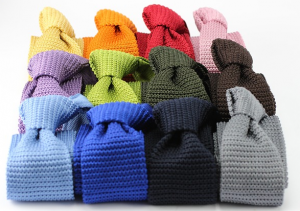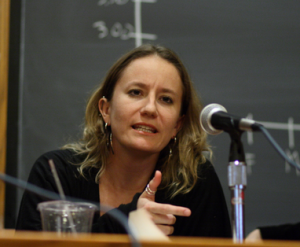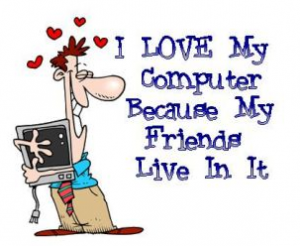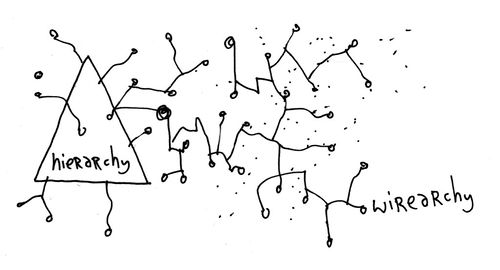76 days have passed since I wrote my first blog post Social Media Beginnings. It was a summer’s afternoon during my holiday. Now autumn has firmly placed its grasp and the year is nearly a quarter gone. We’ve gone through a lot haven’t we? I have learnt oodles during the last 76 days, but I will share 3 thoughts with you here:
1. I need to find out more about danah boyd‘s work.
I was super impressed with her lecture at Politics and Prose. Her research on teens’ use of social media will be useful whenever planning digital spaces or teen programmes. While I’m looking forward to graduating and not studying, she’s definitely someone I want to keep on my radar. And she seems to collaborate with everyone.
Photo taken from:
http://commons.wikimedia.org/wiki/File:Danah_boyd,_Writers_on_Writing_about_Technology_roundtable,_2009-09-30.jpg
2. ‘Social ties’ is going to stay in my vocab
I’d been getting around talking about good friends, work friends, old friends, close friends, people I used to work with, my sister’s friends, new friends, friends of friends etc etc etc, but what I really wanted to talk about was ‘Social ties’. I know Erika Pearson didn’t invent the term, but her article gave me the terms weak ties, strong ties, and latent ties, which is way more succinct.

Strong Ties
Photo taken from:
http://pixabay.com/en/neckties-cravats-ties-fashion-210346/
3. Social Media education is really important
This point isn’t particularly from a reading, a talk or a module but comes from the culmination of all we’ve done over the last 76 days. We’ve seen:
– how a social media profile can make or break a career.
– that social media sites are used in workplaces like IBM to enhance collaboration.
– people are really concerned about privacy issues with social media.
– some cool creative stuff is happening in social media spaces.
On and on I could go! But the one thing that stands out is that as information professionals, we have a role to play in educating people about social media. We’ve all tried a few bits and bobs ourselves as they’ve appeared along the way, but it’s getting very complicated now. The public have had info pros supporting them with media changes before and they would greatly benefit if we did it here. I’m surprised that a course like this one isn’t a compulsory unit for an Information Master’s degree, and I suspect that in a few years it will be.
So let’s go forth and socialise medialy 😉
Photo taken from:
http://photos1.blogger.com/blogger/6772/1888/320/friends.jpg



